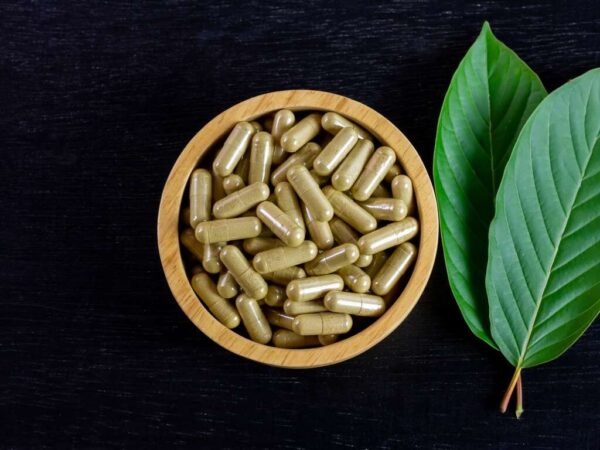Kratom leaves have been used for centuries as traditional medicine and for stimulant effects. Much of this newfound interest is attributed to the rise of kratom capsules – a convenient way to consume kratom powder.
Kratom starts, of course, as a tree. Thai, Indonesian, Malaysian, Myanmarese, and Papua New Guineans are the countries that cultivate kratom trees. Leaves are hand-picked from mature trees by local farmers. The fresh leaves are then sent to processing facilities where the central vein is cut out and the leaves are dried, often outdoors in the sun. Once fully dried, the leaves are ground into a fine powder. This freshly ground powder has a dark green color and a potent aroma. At this stage, the kratom is sold as-is in bulk or further processed into capsules, tablets, extracts, and more.
Manufacturing kratom capsules
The dried kratom powder is sifted to remove any fibrous material from the leaves before making capsules. A precise amount of powder is measured out, usually between 500mg and 1000 mg, and carefully poured into empty gelatin or vegetarian capsules. These capsules contain seaweed, hydroxypropyl methylcellulose, pullulan, and gellan gum. The capsules are manually filled and sealed or tamped by specialized encapsulation machines. The finished capsules are then packaged into bulk containers or bottled for individual retail sale.
Throughout the entire manufacturing process, quality control and lab testing are critical. Reputable kratom vendors test raw materials and finished products to ensure the identity, purity, and potency of their kratom. Contaminants like heavy metals, microbiology, and residual solvents are screened for and kept within safe limits. Proper documentation and labeling providing supplement facts, dosing, and cautions are applied to finished products. All of these controls help to produce a consistent, quality kratom capsule. For more info, visit the best brands of kratom reviewed.
Selling kratom legally
The legal status of kratom is complex and rapidly evolving. While kratom is currently legal at the federal level in the United States, some states have banned its sale or restricted it to adults over 18 or 21. There are also questions about whether kratom is sold as a dietary supplement versus a drug.
- Obtain any necessary licenses or permits for manufacturing dietary supplements. State health departments issue these licenses.
- Avoid making any medical claims about treating or curing diseases. Kratom capsules only be marketed for general wellness and must carry a disclaimer.
- Follow FDA regulations like Current Good Manufacturing Practices for supplement production, facility registration, and submission of new dietary ingredient notifications.
- Adhere to Consumer Product Safety Commission guidelines for proper capsule packaging and childproof containers.
- Label products with dosage directions, supplement facts panel, and warnings per FDA and Federal Trade Commission guidance. Do not represent kratom capsules as a street drug.
- Support industry trade groups like the American Kratom Association that advocate for fair regulation.
By following good manufacturing practices, lab testing for quality, and marketing kratom capsules responsibly, vendors provide consumers with a safe product while building trust and legitimacy. Ongoing advocacy and research are still needed so that the benefits of kratom are shared legally and safely.




